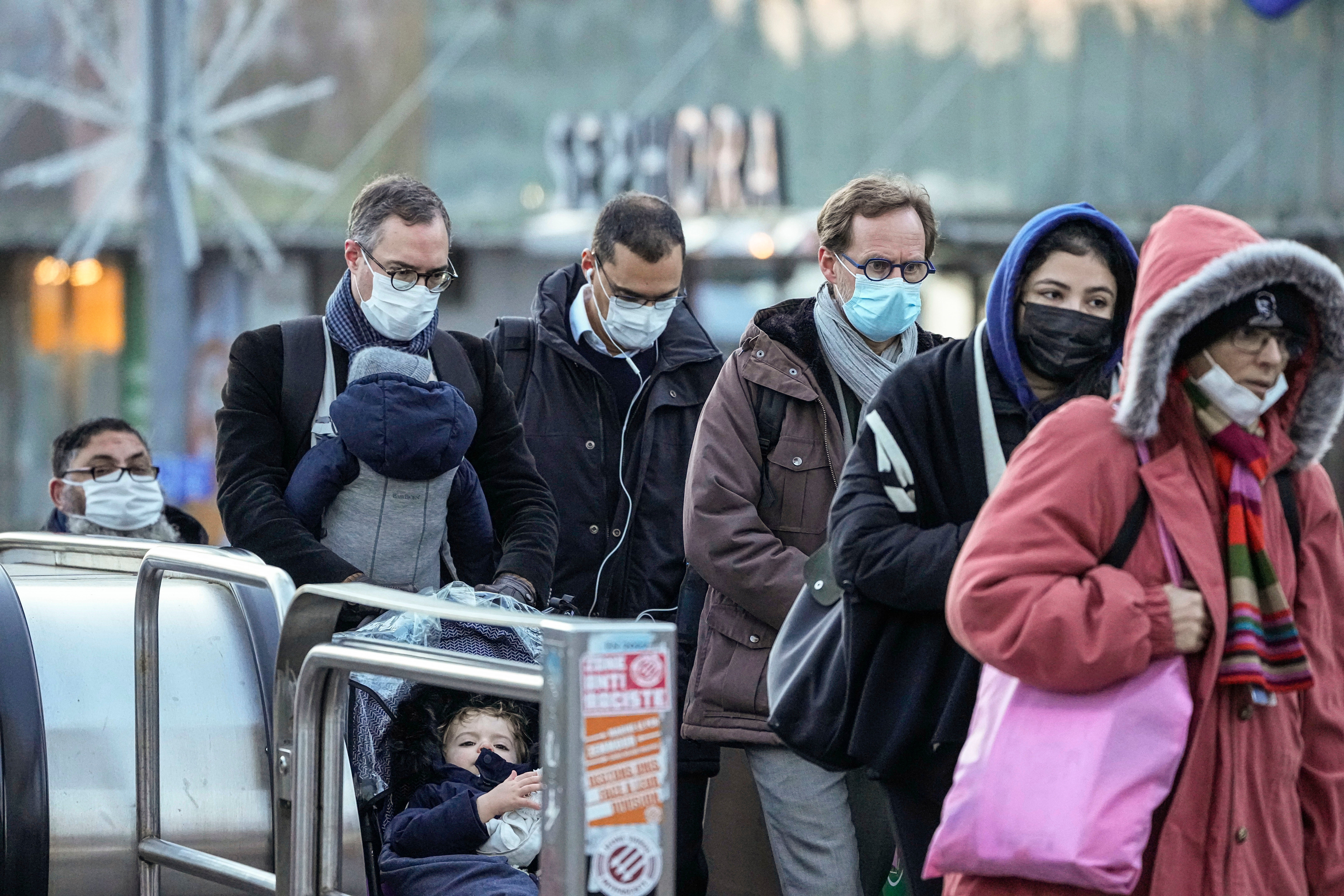WHO: Omicron could spread faster but it's still not certain
The World Health Organization says early evidence suggests the omicron variant of the coronavirus may be spreading faster than the highly transmissible delta variant and brings with it less severe disease — although it’s too early to make firm conclusions

Your support helps us to tell the story
From reproductive rights to climate change to Big Tech, The Independent is on the ground when the story is developing. Whether it's investigating the financials of Elon Musk's pro-Trump PAC or producing our latest documentary, 'The A Word', which shines a light on the American women fighting for reproductive rights, we know how important it is to parse out the facts from the messaging.
At such a critical moment in US history, we need reporters on the ground. Your donation allows us to keep sending journalists to speak to both sides of the story.
The Independent is trusted by Americans across the entire political spectrum. And unlike many other quality news outlets, we choose not to lock Americans out of our reporting and analysis with paywalls. We believe quality journalism should be available to everyone, paid for by those who can afford it.
Your support makes all the difference.The World Health Organization says early evidence suggests the omicron variant may be spreading faster than the highly transmissible delta variant but brings with it less severe coronavirus disease -– though it’s too early to make firm conclusions.
The comments come among swirling concerns about the new variant that first emerged in southern Africa last month, prompting some countries to shut their borders and rattling stock markets fearful of the long-term impact of a possible new variant of the virus that has already infected at least 267 million people and killed more than 5.2 million.
Dr. Michael Ryan, WHO’s chief of emergencies, told reporters Wednesday that data about the omicron variant so far is “pointing to a virus that’s efficiently transmitting and probably more efficiently transmitting than even the delta variant,” which is by far the most widespread and deadly version.
Maria Van Kerkhove, the technical lead for COVID-19 at the U.N. health agency, cautioned that it was too early to determine the severity of disease caused by omicron, saying there’s only “anecdotal information” about that for now.
“We certainly have information from South Africa that many of the patients that are identified with omicron have a more mild course of disease,” she said. “But it does take time for people to go through the full course of their infection.”
Meanwhile, WHO officials stuck to their stance that giving booster shots to people who are already vaccinated should be a secondary priority to getting first doses into the arms of people in places that have relatively little vaccination coverage.
Dr. Soumya Swaminathan, the WHO’s chief scientist, said “wholesale boosting is not the solution right now.” That appeared to be an allusion to policies in some countries, notably in hard-hit Europe and the United States that encourage broad categories of people to get booster shots, not just groups that are seen as especially vulnerable.
“The data from country after country after country is showing that the people who are in the ICUs, the people who are severely ill, and the people who are dying are the unvaccinated,” she said. “I think the message is loud and clear that it’s a primary course of vaccination that is going to protect against severe disease and death -- that has to be our goal.”
Boosters, she added, aren’t useful in countries with large vaccine supplies but where up to 50% of people have not gotten vaccinated, whether out of concern for secondary effects or other reasons.
“At this point, the benefits that we will get from reaching those people who have not received primary courses of vaccination are going to be higher than giving additional doses to those who have already completed a primary course,” Swaminathan said.
The agency had hoped to vaccinate priority populations — the elderly, people with weaker immune systems and health care workers -– in all countries by the end of this year. But rich countries with big vaccine stockpiles have monopolized most doses.
___
Follow all AP stories on the pandemic at https://apnews.com/hub/coronavirus-pandemic.